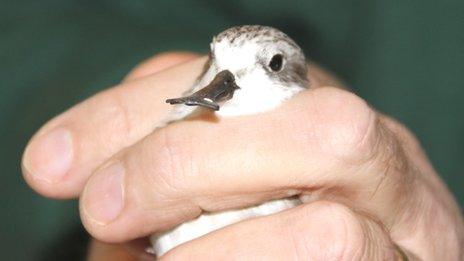Rare spoon-billed sandpipers lay for first time in captivity
- Published
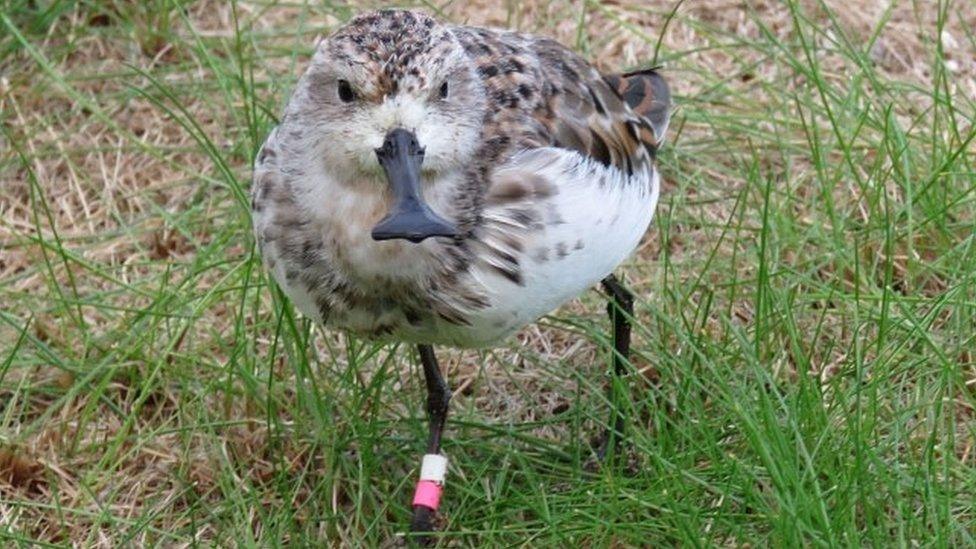
Two female spoon-billed sandpipers have laid seven eggs at the Wildfowl and Wetlands Trust in Gloucestershire
One of the world's rarest birds - the spoon-billed sandpiper - has laid eggs in captivity for the first time.
Two females laid seven eggs at the Wildfowl and Wetlands Trust (WWT), Slimbridge, Gloucestershire.
There are only about 200 breeding pairs of the critically endangered species left in the wild.
Nigel Jarrett, from the trust, said when staff discovered the first egg last week they "almost couldn't believe it".
Mr Jarrett, WWT head of conservation, said staff had "done their best" to enhance breeding conditions, with special lightbulbs, timer switches and lots of sand and netting to recreate the experience of migrating from tropical Asia to Arctic Russia.
'Scratching our heads'
"For the last two years - ever since all the spoonies came into maturity - we've been doing everything to get these birds in the mood for love," he said.
"And for two years we've come up scratching our heads and feeling a bit deflated. Now, we've had two mums busy laying and the significance of it is only just starting to hit home."
The WWT began trying to establish a flock at Slimbridge in 2011, as a back-up to the wild population which was declining by up to 25% a year.
But with its extreme lifestyle - including making an annual 10,000-mile round-trip between Russian Arctic breeding grounds and wintering grounds in South East Asia - the bird has never been bred in captivity.
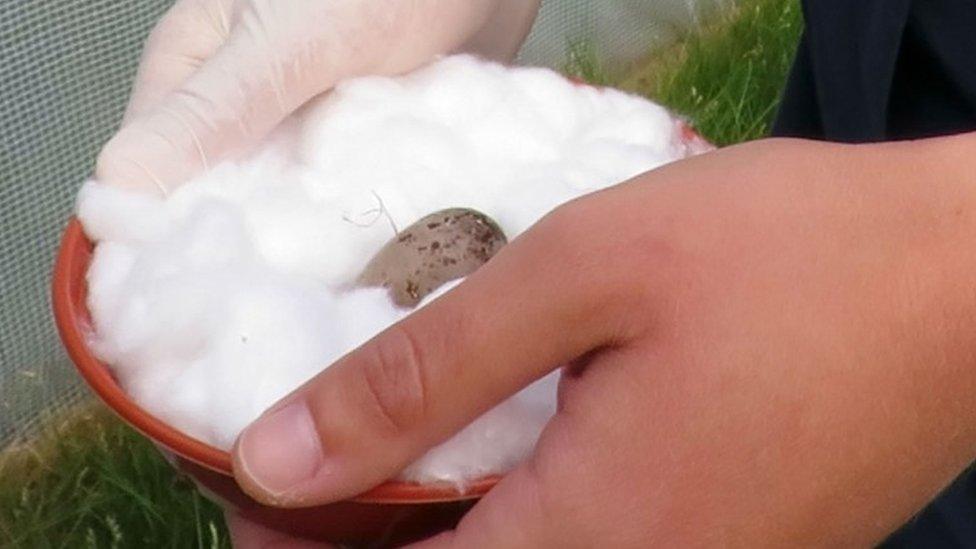
Each bird usually lays four tiny eggs, taking the mother almost a week to lay a clutch weighing a total of 32g (1oz) - more than her entire bodyweight
In the wild, the birds have been hit by loss of habitat in East Asia and bird trapping by villagers in Bangladesh and Burma.
Mr Jarrett said the trust was now on the road to breeding spoon-billed sandpipers in captivity, which was "the ultimate insurance policy for the species in the wild".
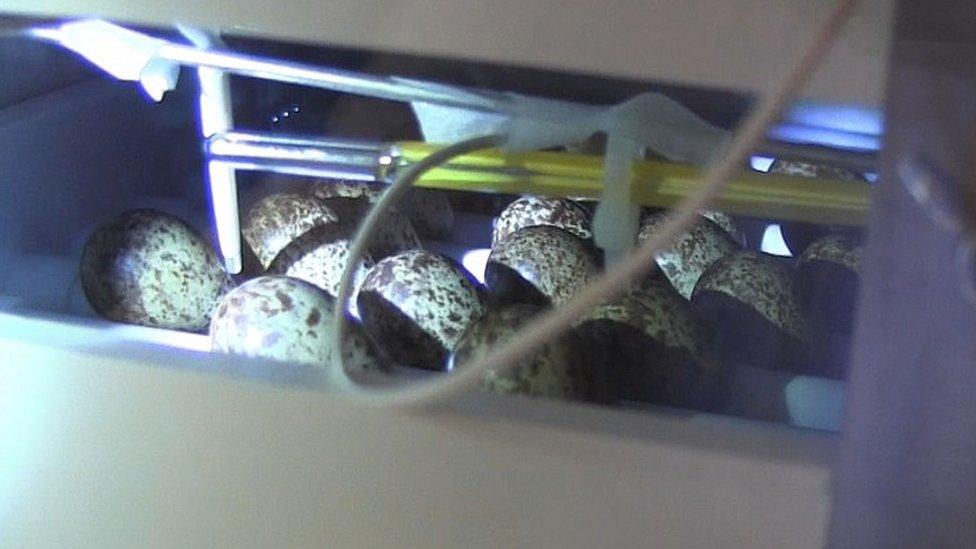
The eggs have been taken into an incubator and will be examined in the next few days to see if embryos are developing
- Published19 August 2015
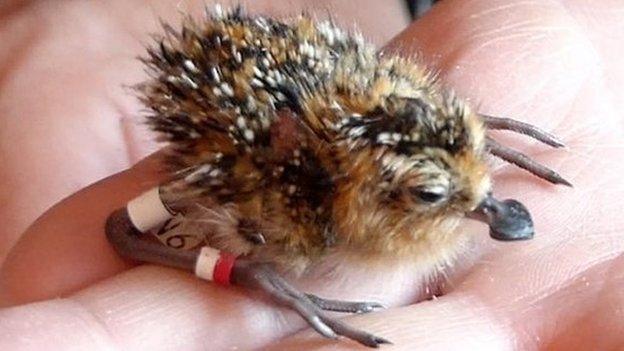
- Published13 July 2012
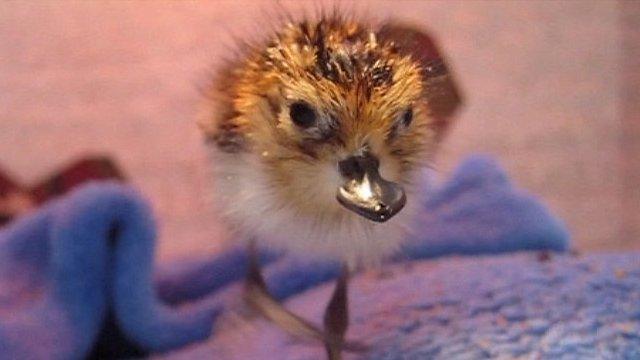
- Published13 July 2012

- Published19 December 2011
